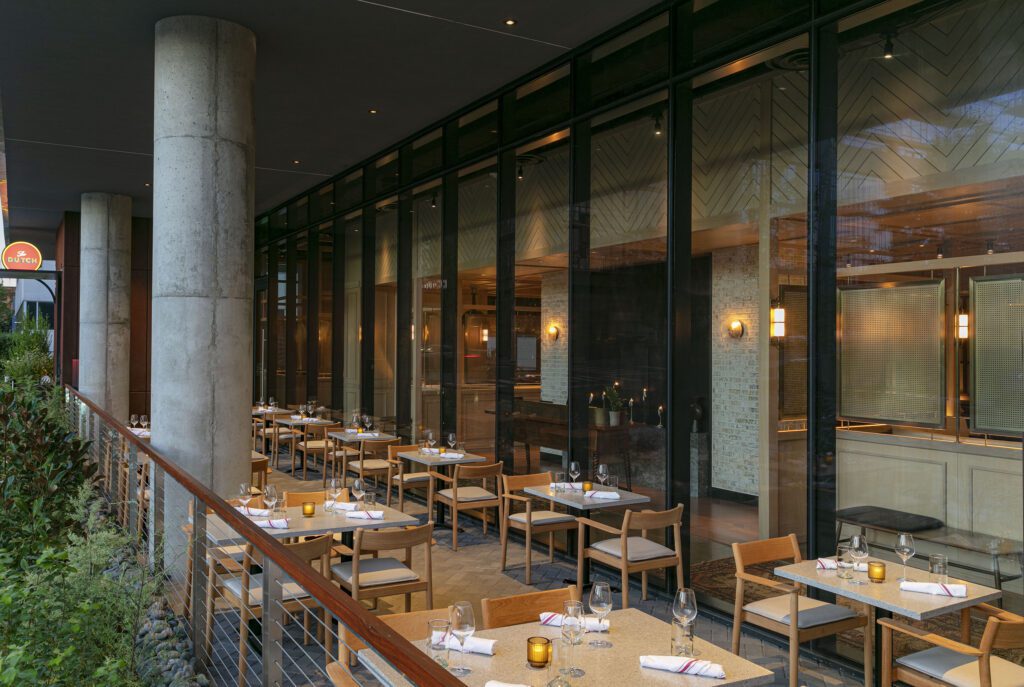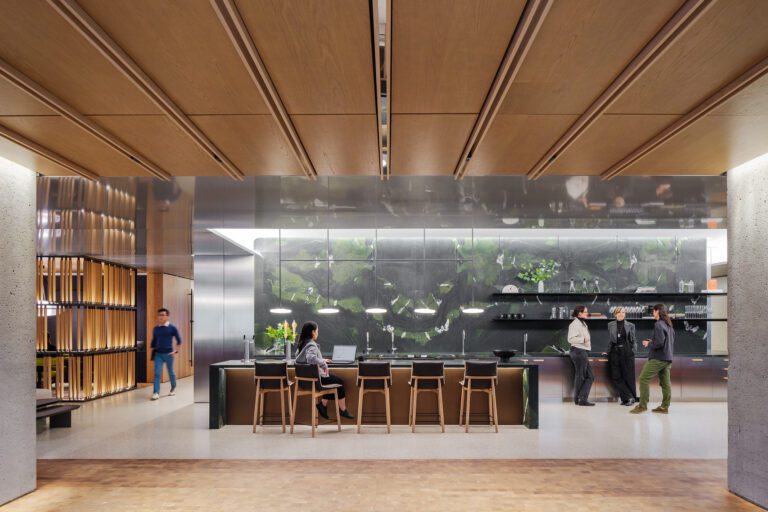In restaurants, wood walls help create a warm and inviting atmosphere that inspires customers to relax and enjoy themselves.
Wood panels add style, improve insulation, and conceal the underlying framework of the building better than most materials.
Wood also does an amazing job of improving the acoustic environment, allowing patrons to have pleasant conversations that don’t travel from table to table.
The main concerns with wood panels include maintenance, water damage, and deformation.
However, these problems can be avoided by working with an expert team and selecting high-quality woods. In fact, the best wood paneling systems are among the most durable and easily-maintained wall options for restaurants—in addition to the aesthetic and acoustic advantages.
Picking the right species of wood is an important part of your purchase.
Today, let’s explore some of the woods you may consider when planning the design for your restaurant.
We’ll begin with one of the most popular and attractive options: ash.
1: Ash
Ash exhibits unique, visually striking grain patterns, with highly-varied blond or darker brown lines moving across a light-colored backing. Ash is a clean slate for modifying with a range of finishes and stains to match the design goals for any space.
Ash is a lightweight wood that’s easy to work with, but it’s also durable and warp-resistant. It’s a smart choice for high-traffic areas or environments—such as restaurants—where humidity levels fluctuate dramatically.
2: Maple
Maple wood is light-colored and features distinct grain patterns. The coloring is bright, full of light, and sometimes exhibits gold or reddish hues.
Maple is one of the hardest commercially-available species and requires minimal maintenance. It’s also abundant in the wild and can be sourced from a number of sustainably-managed forests in the United States.
3: Walnut
Luxurious yet widely and sustainably produced, walnut comes in a range of colors. The heartwood can be light brown to a dark chocolate hue, while the sapwood is light yellow. The color gradient creates excellent aesthetic opportunities for interior design, as do the prominent grain lines that may run straight or curly.
Attractive and functional, walnut is resistant to staining, fading, and decay. Walnut is also known for its pleasant acoustic qualities, evidenced by its frequent use as an acoustic guitar wood.
4: Oak
Of the hundreds of oak species, the standard groupings considered for woodworking and design projects are red oak and white oak.
Red Oak
Red oak wood features gorgeous coloring that requires minimal stains or treatments. Its heartwood is pinkish red and its sapwood tends towards lighter shades of brown.
The appearance of red oak is pronounced and eye-catching, an excellent choice for creating distinct interior spaces.
White Oak
The color of white oak is light brown or golden. White oak boards exhibit consistent coloring that allows for an excellent level of control in applying an attractive and uniform finish.
White oak is a stable wood with a tight grain pattern, resistant to dents, scratches, warping, and shrinking. These qualities make it a favorite among woodworkers, popular for use in cabinets, floors, and walls.
5: Beech
Beech coloring ranges from soft yellow to reddish brown. It’s often an attractive shade of creamy white.
The tight and close grain pattern in beech creates a smooth and durable texture. Beech is resistant to wear and tear and performs better than most woods when subjected to frequent changes in temperature and humidity.
6: Cherry
Every piece of cherry wood is full of character. For overall aesthetic quality, few woods can compete with cherry’s warm reddish hue and unique, diverse grain patterns.
Cherry wood also contains natural oils that are resistant to staining and fading. It’s a popular choice for woodworkers, known for its superior combination of texture, color, and ease of use.
Get Sustainable Wood Panels for Your Restaurant
At Rulon International, we develop acoustic and non-acoustic wood panel systems for a variety of applications. Our products are chosen by designers who value sophisticated aesthetics and superior sound control.
All Rulon panels are certified sustainable and sourced from professionally-managed forests.
To learn more, view our gallery or contact our team today.




